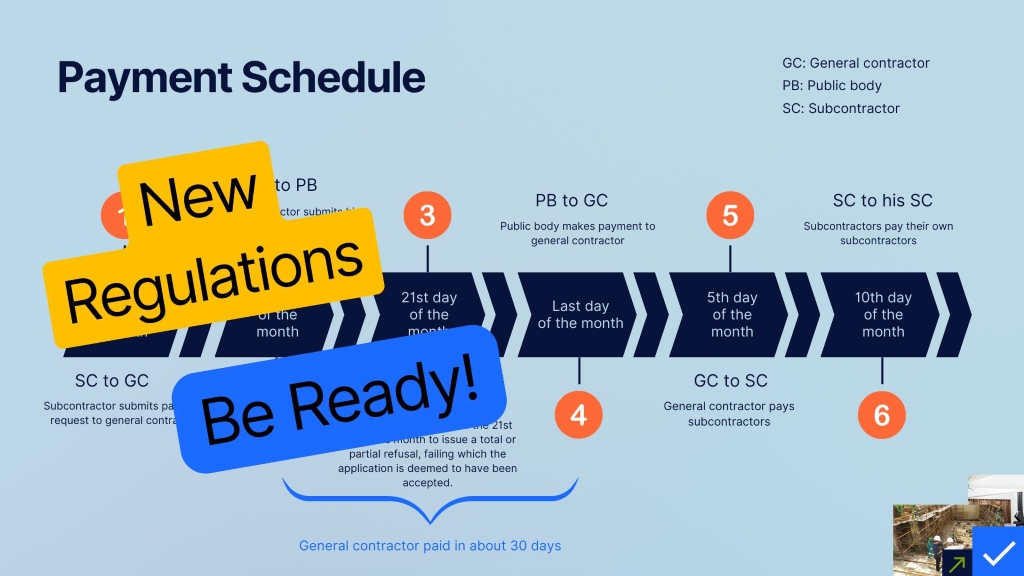Introduction
Construction projects can be complex and involve a multitude of stakeholders, including architects, engineers, contractors, and subcontractors. With so many people and processes involved, it's not uncommon for disputes to arise, which can lead to costly and time-consuming lawsuits.
In the event of legal battles, access to the original construction data can be a crucial factor in determining the outcome. Construction data includes information like the project timeline & finances, who was involved and when, and specifically any changes made during the construction process. This data can help construction owners demonstrate their compliance with regulations and contractual obligations, as well as defend themselves against allegations of negligence or breach of contract.
In this blog post, we will explore the importance of retaining access to construction data in case of a lawsuit. We will discuss how construction data can impact legal proceedings, as well as the potential long-term benefits of retaining access to this data.
1. Verifying Project Specifications
Accurate and comprehensive documentation is crucial during a construction lawsuit to determine whether the project met the agreed-upon specifications. It is important for construction owners to retain access to all relevant data, including the numerous revisions that likely took place, to provide a detailed record of the project's progression. By doing so, they can present valuable evidence to validate their claims and protect their interests. This documentation should include project plans, contracts, change orders, and any other relevant construction data.
The more detailed the documentation, the more it can help establish the facts of the case and demonstrate that the project met, or missed, the agreed-upon specifications. Additionally, construction owners should ensure that all documentation is up-to-date and well-organized, as this can help facilitate the legal process and potentially lead to a more favorable outcome.
2. Assessing Compliance with Codes and Regulations
Compliance with building codes and regulations is vital in the construction industry to ensure building safety. Access to construction data becomes crucial in lawsuits to demonstrate adherence to these codes. This data encompasses inspection reports, permits, certifications, and other relevant documents. By retaining access to this information, construction owners can effectively defend themselves against allegations of non-compliance, strengthening their position in court.
Regularly reviewing and updating this data is also important as it helps identify potential issues early on, preventing costly and time-consuming problems in the future. Accurate and up-to-date records of building data are therefore essential for construction owners to maintain compliance with building codes and regulations and address any concerns promptly.
3. Evaluating Quality and Workmanship
Construction projects face significant concerns and potential damage due to construction defects or claims related to poor workmanship. These issues can be both financially burdensome and damaging to the reputation of all parties involved. To mitigate these risks effectively, it is crucial for owners to maintain access to the relevant construction progress captured.
This construction data includes essential records such as quality control reports, test results, and other pertinent documentation. Analyzing this data enables owners to assess whether the contractor fulfilled their obligations and adhered to industry standards. With access to this information, owners can confidently identify where workmanship met or missed expected standards or quality levels.
Retaining access to this data is not solely valuable for risk mitigation purposes. It also plays a vital role in gathering evidence to counter claims of substandard workmanship. By possessing the necessary documentation, owners can potentially avoid unjust liabilities and safeguard their interests in the event of a dispute.
4. Demonstrating Due Diligence
In a lawsuit, the concept of due diligence is crucial in proving that the construction owner acted responsibly and took all necessary precautions to mitigate risks. By showcasing their commitment to due diligence, construction owners can establish their credibility and potentially minimize their liability.
One way to demonstrate due diligence is through access to construction data. By thoroughly documenting each step of the construction process, including any potential risks and the measures taken to mitigate them, construction owners can show that they took the necessary steps to ensure safety. This can include documentation of safety inspections, testing of materials, and employee training records.
Construction owners can also demonstrate due diligence by implementing safety measures beyond what is strictly required by law. For example, they could install additional safety equipment or hire additional safety personnel to monitor construction sites. These extra measures not only ensure safety but also demonstrate to the court that the owner took reasonable care.
It is important to note that due diligence must be ongoing throughout the construction process, and that documentation and safety measures should be regularly reviewed and updated as needed to ensure the safety of all involved.
5. Supporting Dispute Resolution
Construction disputes can be complex and time-consuming, requiring significant resources to resolve. However, alternative dispute resolution mechanisms like mediation or arbitration have emerged as efficient and cost-effective alternatives to traditional litigation. These mechanisms are particularly useful in settling construction disputes but require access to comprehensive construction data for effectiveness.
Accurate and up-to-date construction data is essential for productive dialogue and reaching mutually beneficial settlements in construction disputes. This data provides valuable insights into the nature of the dispute, including its causes and potential solutions. Access to such data enables parties to better understand the issues and work towards satisfactory resolutions.
For owners, retaining access to construction data is especially beneficial during dispute resolution processes. It allows owners to actively participate and increases the likelihood of favorable outcomes. Additionally, access to data helps owners identify issues early on, enabling them to take proactive measures to prevent disputes altogether. This proactive approach ultimately saves time, money, and resources, making it a valuable investment for construction project owners.
In summary
To summarize the key points, the importance of access to construction data for owners facing a lawsuit becomes evident in:
- Verifying Project Specifications
- Assessing Compliance with Codes and Regulations
- Evaluating Quality and Workmanship
- Demonstrating Due Diligence
- Supporting Dispute Resolution

Conclusion
Retaining access to construction data is crucial for construction owners facing lawsuits or legal disputes. It provides them with the necessary evidence to substantiate their claims, verify compliance, assess quality, demonstrate due diligence, and support dispute resolution efforts. By safeguarding construction data, owners can protect their interests, maintain transparency, and strengthen their position in legal proceedings. As the construction industry evolves, the digitalization and efficient management of construction data become even more essential for owners to navigate potential legal challenges successfully.







